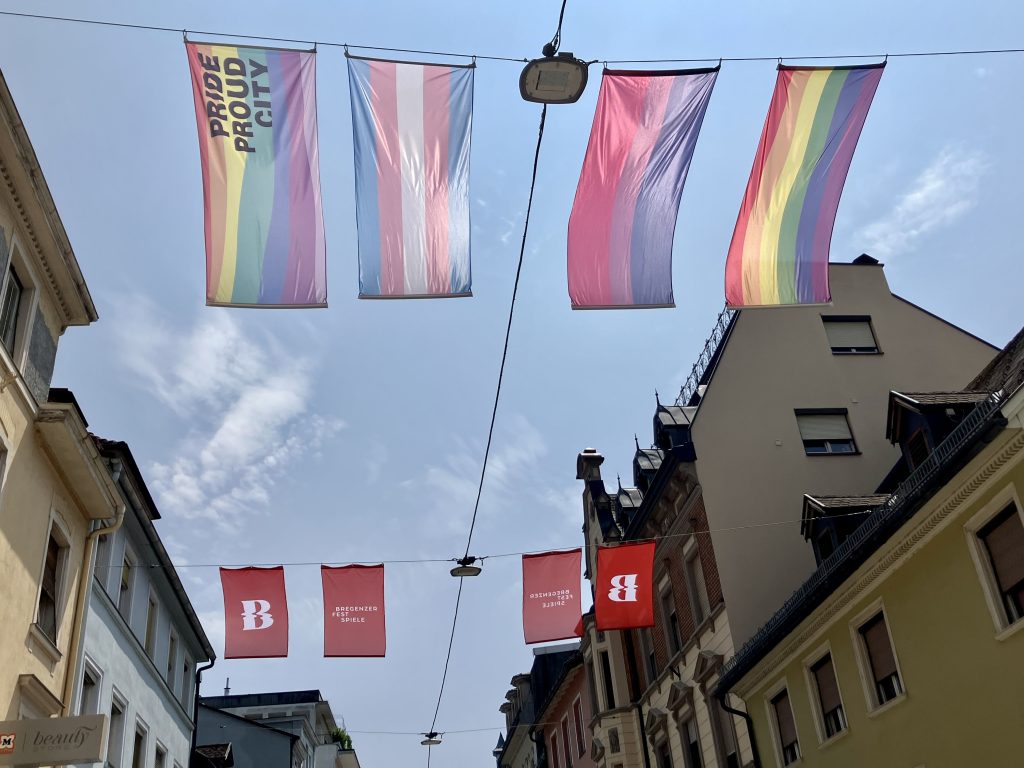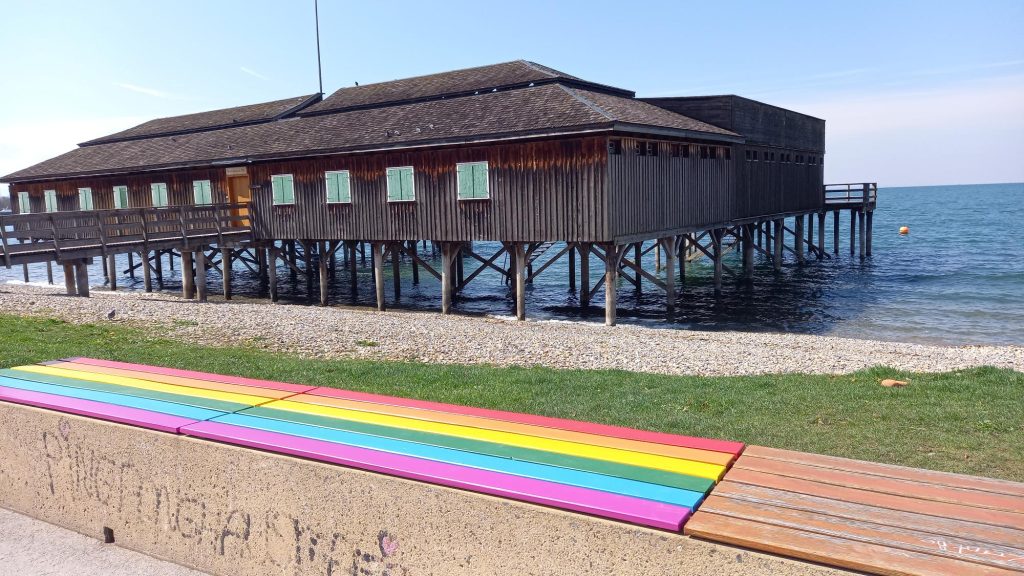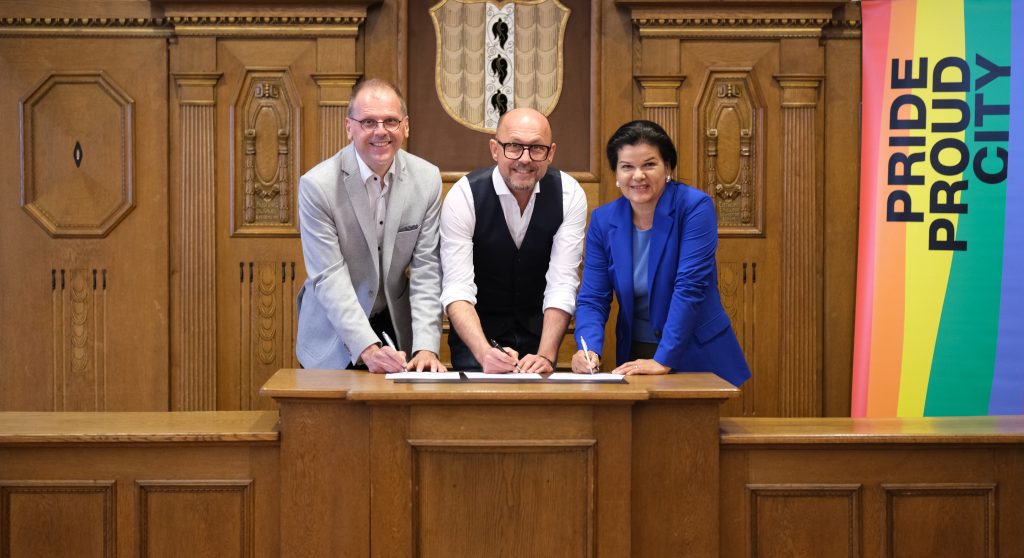Bregenz

Description of the city
Bregenz is the capital of the Austrian state of Vorarlberg. Around 30,000 inhabitants live here between Lake Constance, the Rhine Valley and the Bregenz Forest. Bregenz has been a member of the Rainbow Cities Network since June 2024.
The state capital of Bregenz sees its pluralistic urban society as characterised by the diversity of gender and sexual identities and forms of expression, which it respects and recognises in their diversity. The visibility and unprejudiced acceptance of lesbians, gays, bisexuals, trans, inter and other queer people is a matter of course for the state capital of Bregenz and its employees. Queer issues and concerns are constantly considered and organised in political and administrative actions.
Objective
Protecting the dignity of all citizens is part of the democratic principles that form the Basis for coexistence in our city. Bregenz is committed to LGBTIQ+ rights as human rights within the meaning of the European Charter of Fundamental Rights and rejects any form of discrimination based on sexual or gender identity. All people in the LGBTIQ+ communities in Bregenz have framework conditions that enable them to freely organise a queer life without discrimination and with equal rights. The city administration, the LGBTIQ+ department and local politicians are actively committed to this.
Priority areas
- Development of the LGBTIQ+ department and expansion of internal and external activities
- Establishment of a dedicated LGBTIQ+ news channel as part of the city’s public relations work www.bregenz.gv.at/lgbtiq
- Development and regular publication of the LH Bregenz Queer Newsletter
- Regular LGBTIQ+ training workshops for LH Bregenz employees and multipliers
- Financial promotion and support of local queer associations, initiatives and organisations as well as the annual CSD PRIDE Vorarlberg in Bregenz
- Conception and realisation of own (specialist) events on queer topics
- Establishment of an internal network for queer employees at the LH Bregenz
- Supporting local research and commemorative work on the persecution of LGBTIQ+ under National Socialisnn and in the Second Republic.


Publication and other materials
You can find several documents on the website.
